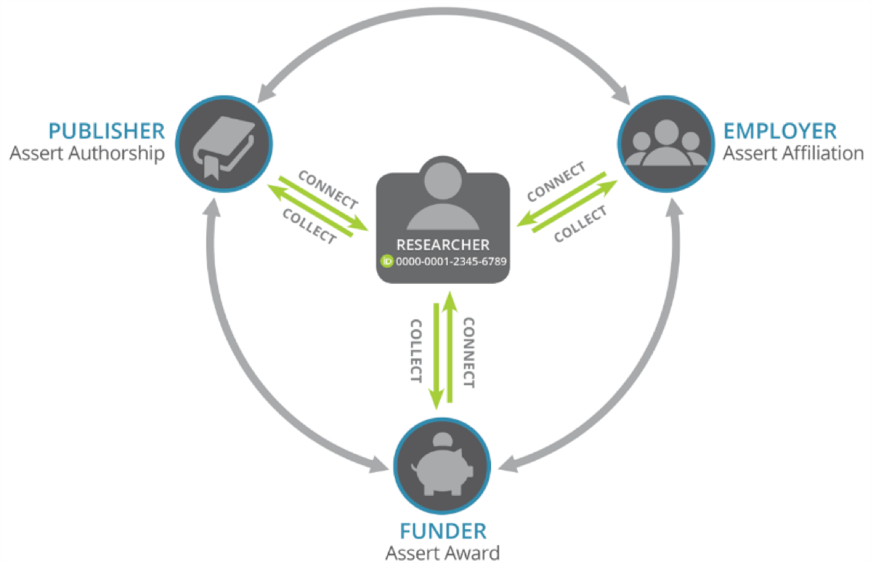By Marisa Strong. If you’re a researcher on a UC campus, you most likely have heard of ORCID (Open Research and Contributor ID). ORCID iD is a unique digital identifier that provides name disambiguation between researchers who may share the same name.
ORCID, managed as a nonprofit organization, provides a registry of ORCID iDs. These are in widespread use among research institutions, funders, publishers, and 7 million individuals across the globe involved in research, innovation, and scholarly communication in multiple disciplines.
An ORCID iD is an https URL with a 16-digit number that is compatible with the ISO Standard (ISO 27729), also known as the International Standard Name Identifier (ISNI), e.g. 0000-0001-2345-6789.
An ORCID record contains information about the ORCID iD holder. It is maintained only by the ORCID user and can be made public, kept private, or shared among trusted organizations and applications that the user authorizes. These applications typically are part of the scholarly ecosystem, such as publishers, funders, and other campus organizations and application services.
ORCID iDs are just one of the persistent identifiers used to connect outputs, individuals, and organizations engaged in research within the scholarly ecosystem. To learn more about organizational persistent identifiers, read about the Research Organization Registry.
Benefits of Campus Support for ORCID
When campuses provide widespread support for ORCID within their applications, researchers benefit by being able to connect their research and scholarly outputs (e.g., articles, publications, datasets, and presentations) to their ORCID profile. This connection occurs automatically when an ORCID user grants permission for the application to share data throughout their systems and workflows.
Applications are currently being implemented by some UC departments across the system to automatically capture research-related information such as data management plans, linked via ORCID, which in turn simplifies and speeds up grant application and reporting processes.
The campus administration benefits too, since ORCID enables institutions to leverage interoperability with other research information systems and to conduct analysis on campus research contributions. In addition, supporting ORCID helps institutions comply with requirements for funding applications and reporting, measure institutional impact by aggregating individual contributions, and assess individual researcher’s contributions for performance review, promotion, and tenure.
Using ORCID’s API facilitates tracking, managing and sharing individual’s data between systems & workflows that utilize this information.
Streamlining Use of ORCID
As more and more researchers utilize ORCID, it is important for campus applications to be adapted to support and integrate ORCID into current scholarly workflows. For example, applications can provide links for researchers to assign or create their ORCID to scholarly outputs. At UC, all campuses now allow researchers to authenticate into ORCID using their campus credentials (i.e., via single sign-on or SSO). Some institutions are going even further to streamline use of ORCID by integrating it with the identity management system, storing it as part of the user profile.
The California Digital Library will continue to partner with campuses to help facilitate outreach, adoption, and integration of the ORCID iD into more UC services. If you’re interested in learning more about ORCID activities on your campus, you may reach out to your library or Office of Research. Additionally, the ORCID website has a number of resources where you can find specific UC campuses that have implemented and support ORCID iDs within their campus services.
 Marisa Strong is an application development manager, California Digital Library, UC Office of the President.
Marisa Strong is an application development manager, California Digital Library, UC Office of the President.









We added an ORCID ID field to our Person Profile page on UC Davis SiteFarm last year. I’m pleased to see it more widely used across UC!